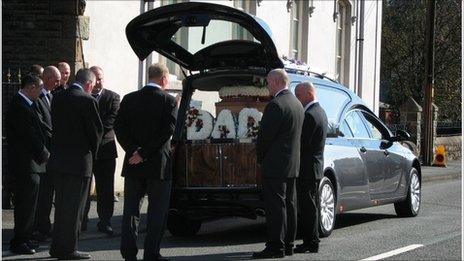Gleision: Families protest for inquest into miners' deaths
- Published
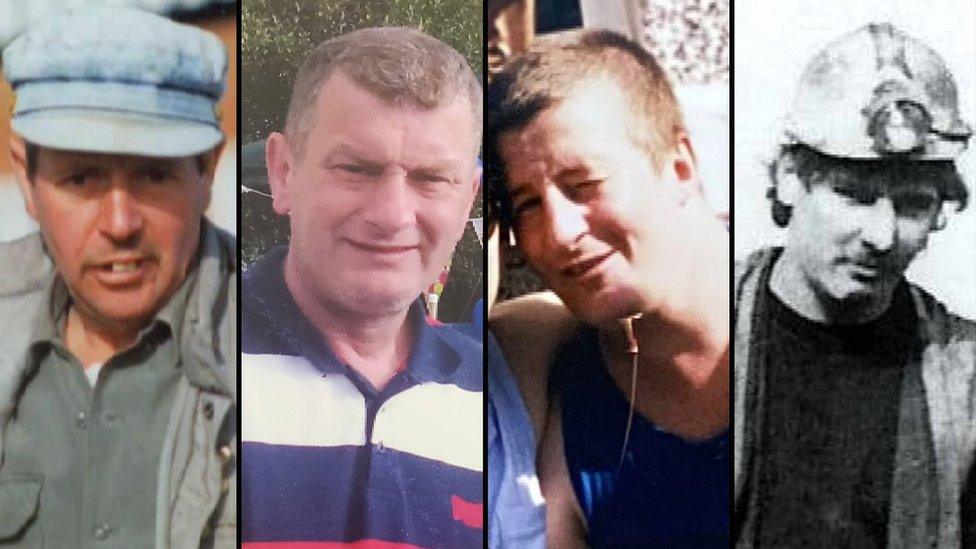
Charles Breslin, David Powell, Philip Hill and Garry Jenkins (l-r) died after water rushed into the Gleision colliery
The families of four men who died in a coal mine more than 10 years ago have been demanding progress on the inquests into their deaths.
They said there were still unanswered questions about what led to the incident at the Gleision mine.
Charles Breslin, 62, David Powell, 50, Phillip Hill, 44, and Garry Jenkins, 39, died when water flooded the drift mine on 15 September 2011.
Swansea and Neath Port Talbot Coroner's office said it could not comment.
The rescue effort received global attention, but just three men survived.
In 2014, the manager and owners of the Swansea Valley mine were cleared of manslaughter charges.
More than a decade after the incident near Cilybebyll, the men's families believe an inquest could get them the answers they are searching for.
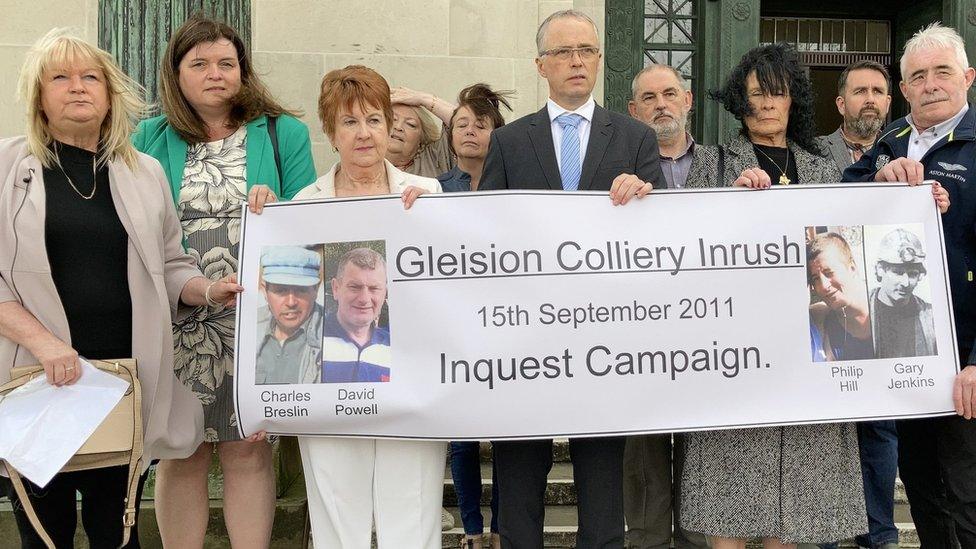
The families called for full inquests outside Swansea Coroner's Court on Thursday
"What did happen on that day? They say it's an accident, an accident is something that can't be helped. I too think there are answers there," said Mavis Breslin, the widow of Charles Breslin.
"Ten years and seven months. It's a very long time to wait for answers. I didn't think we'd have to wait this long at all, I don't think any of us did."
Survivors Jake Wyatt, 68, and Nigel Evans, 49, previously spoke of alleged illegal workings in the mine and said they felt authorities had failed to get to the bottom of what might have caused the miners' deaths.
But there have been new allegations of illegal workings in the mine before the tragedy.
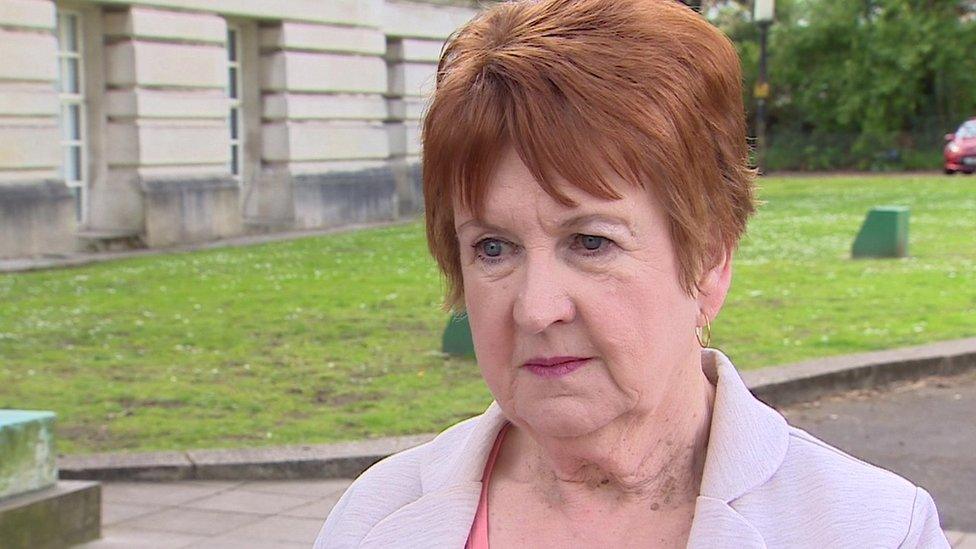
Mavis Breslin said she felt "cheated" by the lack of an inquest after 10 years
Lee Reynolds was a surveyor at Gleision mine between 2000 and 2002 and has been working with the families.
He said: "Over the last 10 years we've been investigating the background to the inrush in the 10 year prior to it.
"This has identified systemic failings by governing authorities and basically this what we're hoping now is a final step before we hear if there will be in inquest."
Nigel Evans (left) and Jake Wyatt spoke about their "survivors' guilt" in 2011.
Sioned Williams, Plaid Cymru Member of the Senedd for South Wales West, said an inquest was needed to consider all the "new questions".
"New, valid and important question have been raised about what led up to the incident at the mine, questions an inquest can consider in order to understand if this was a tragedy that could've been avoided."
She added that the families and community "deserve answers to these questions after they've suffered such a loss".
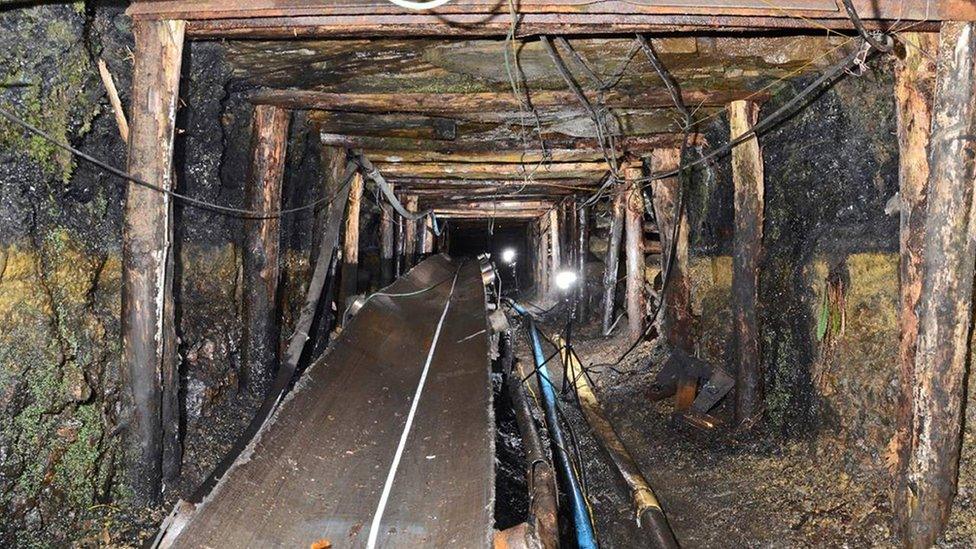
The mine shaft was flooded by 650,000 gallons of water after a controlled explosion on 15 September 2011
The bereaved families said they would continue to press for answers to ensure that "every lesson has been learnt from that fateful day".
Swansea and Neath Port Talbot Coroner's office said: "We have been carefully reviewing material relating to this tragic incident, however, as you will appreciate the coroner is prevented from commenting further on individual cases other than in open court."
- Published15 September 2021
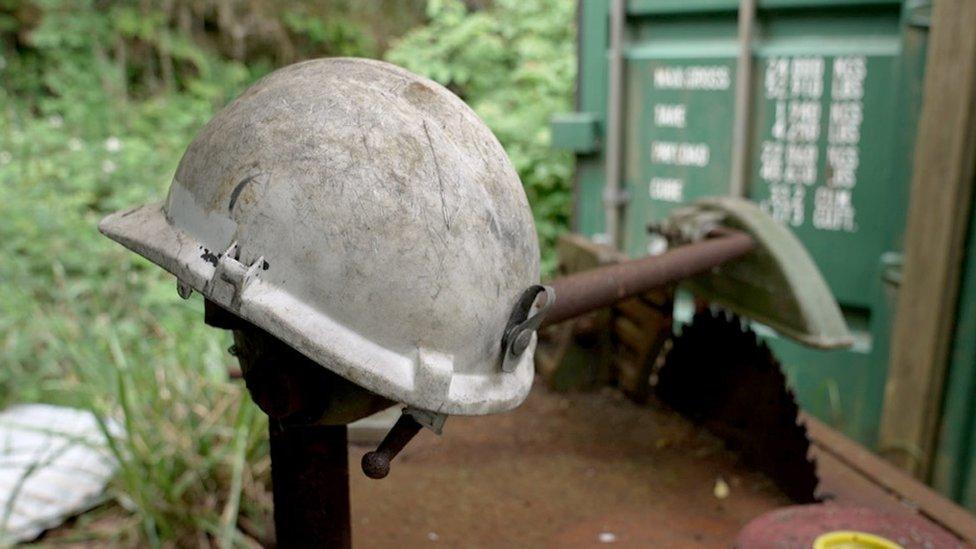
- Published15 September 2021
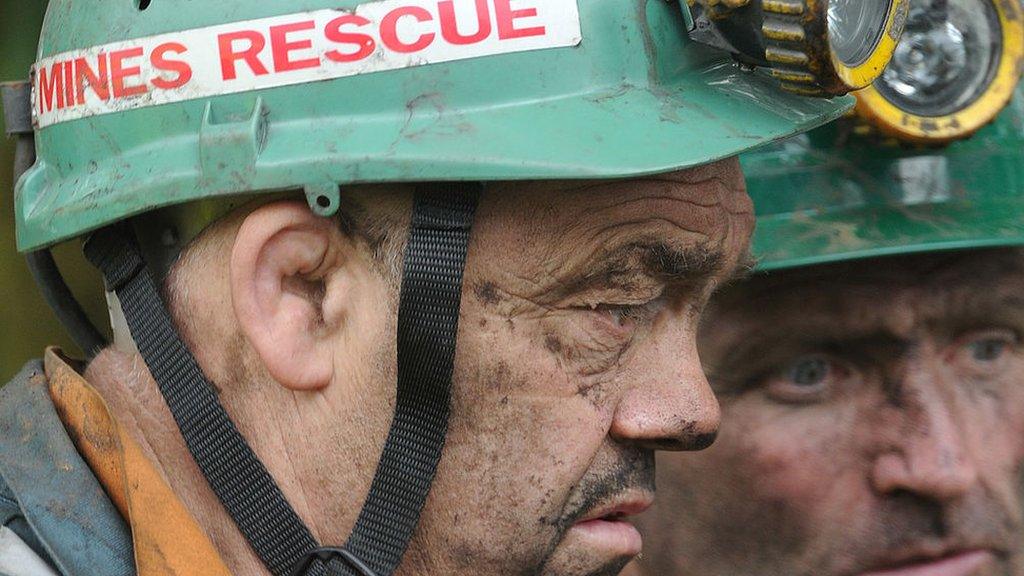
- Published19 June 2014
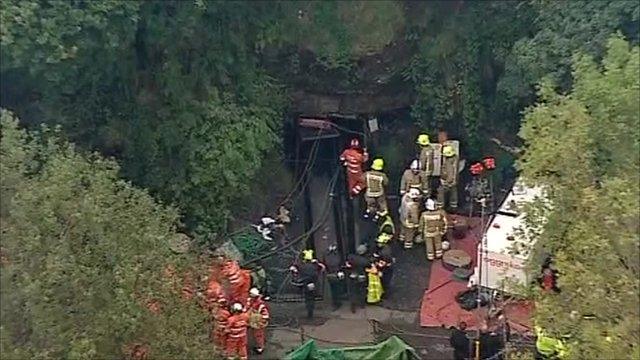
- Published1 October 2011
